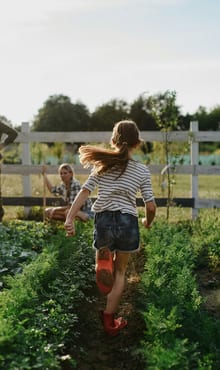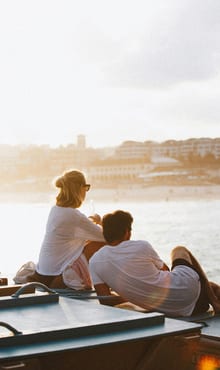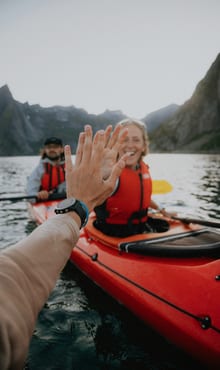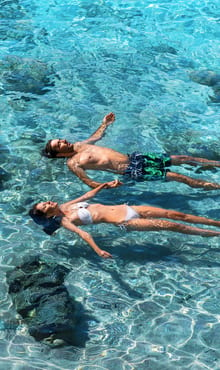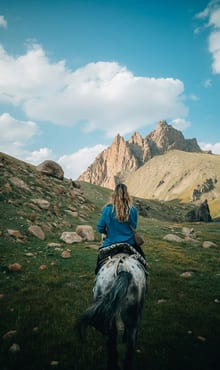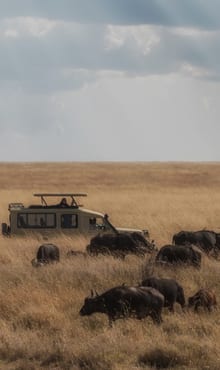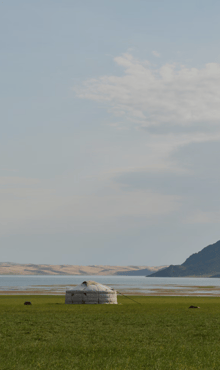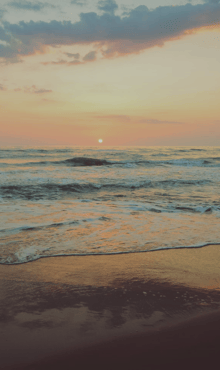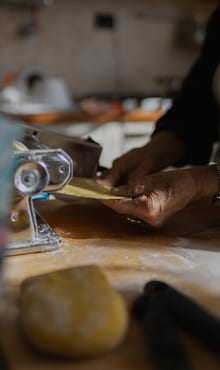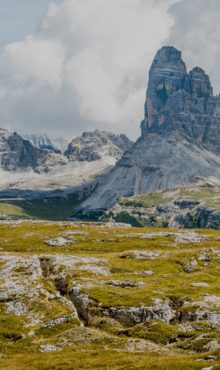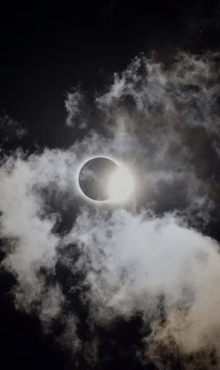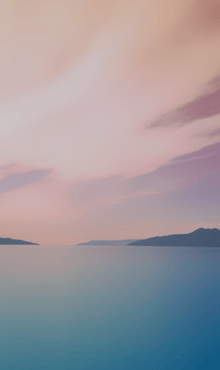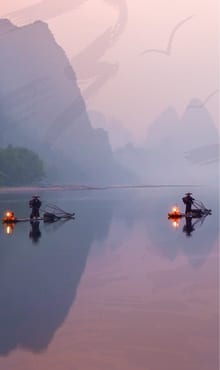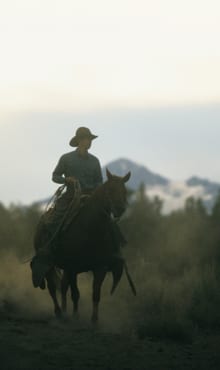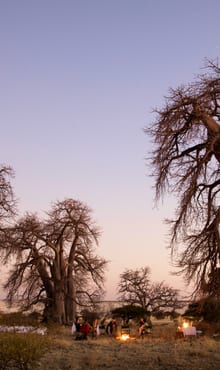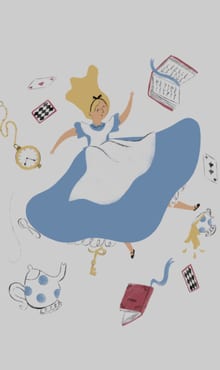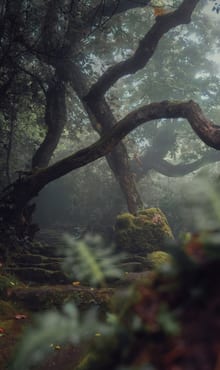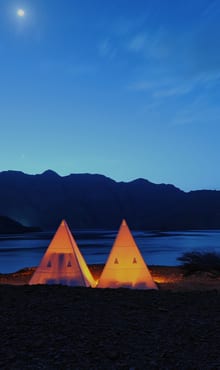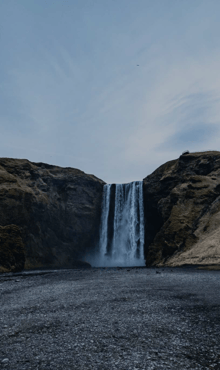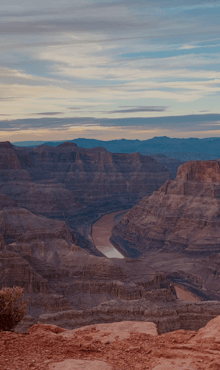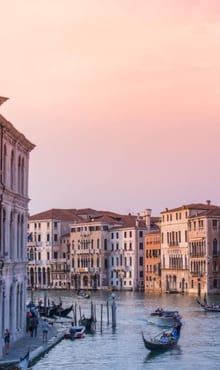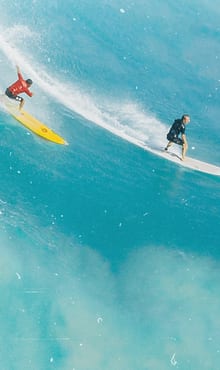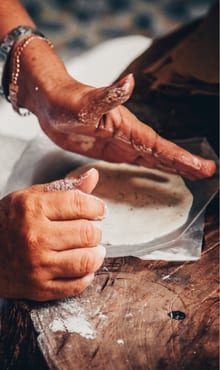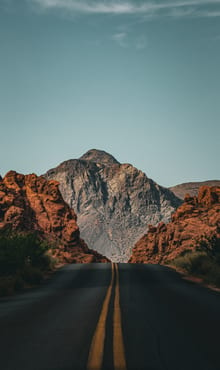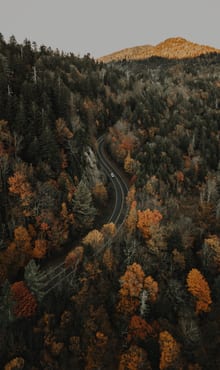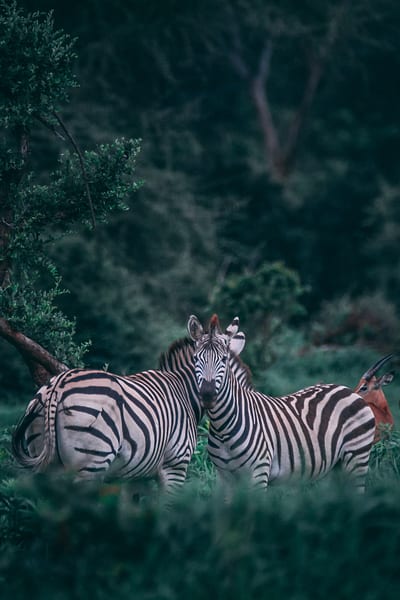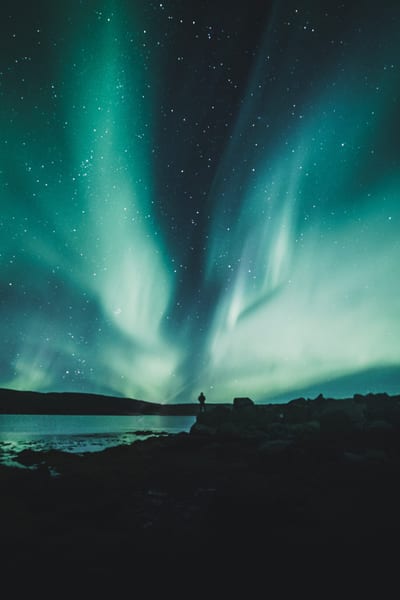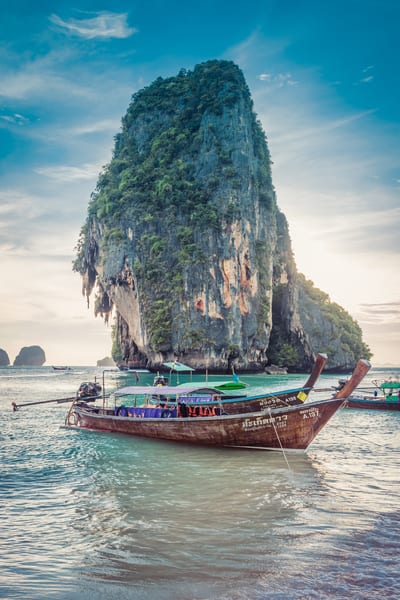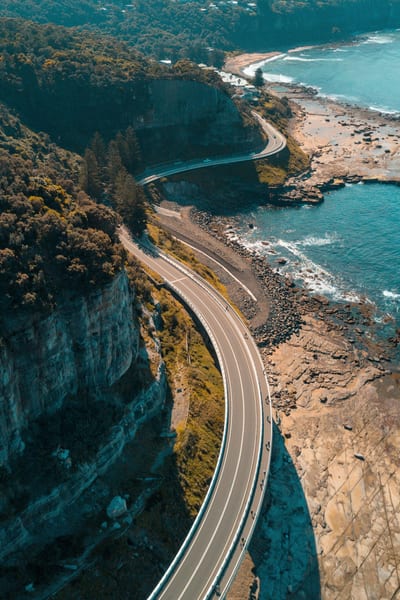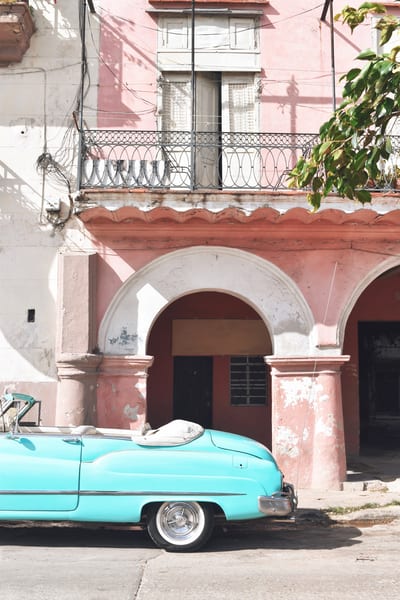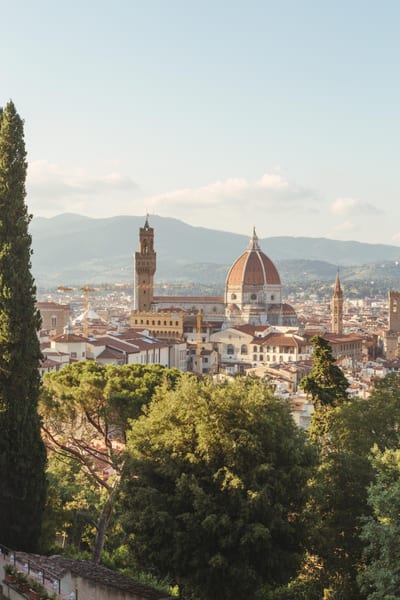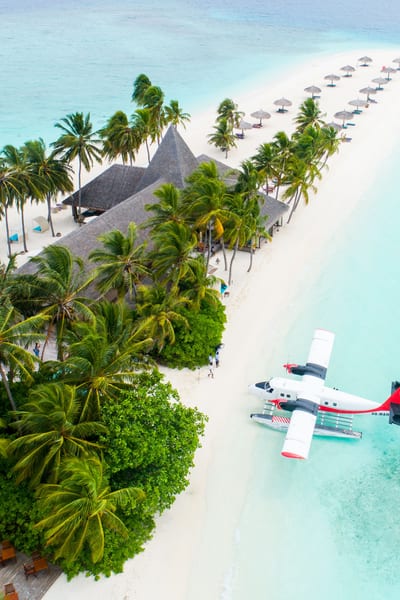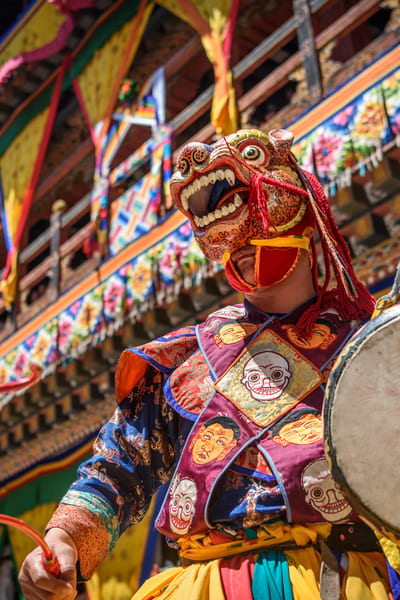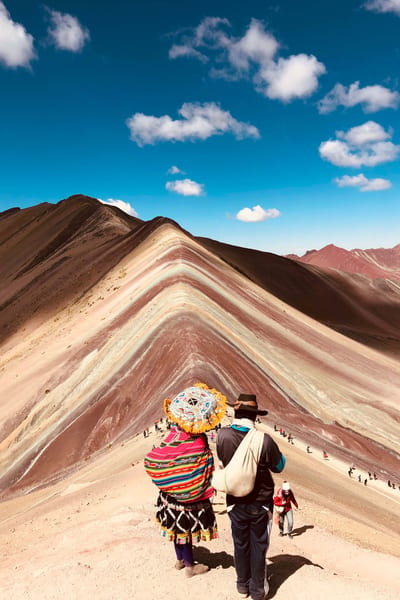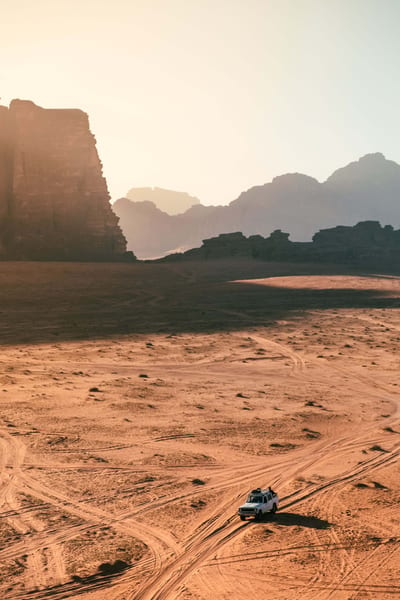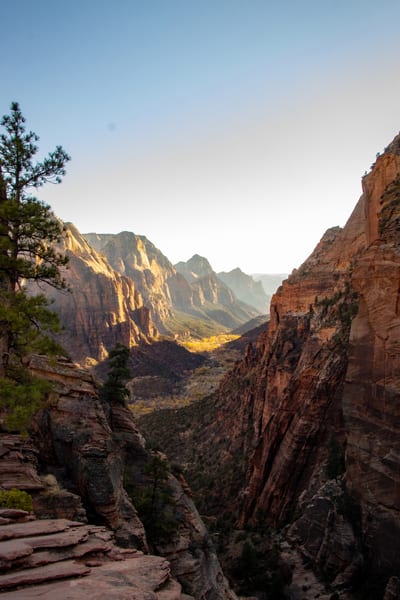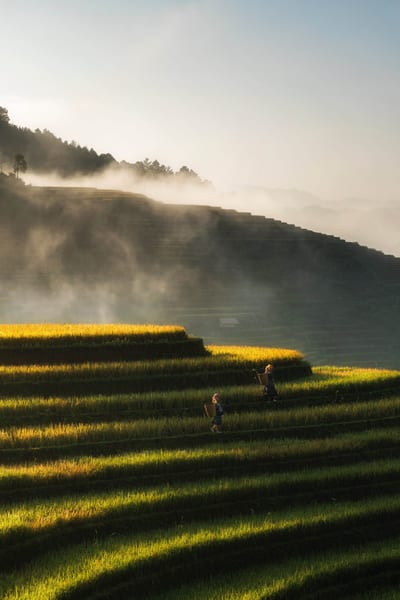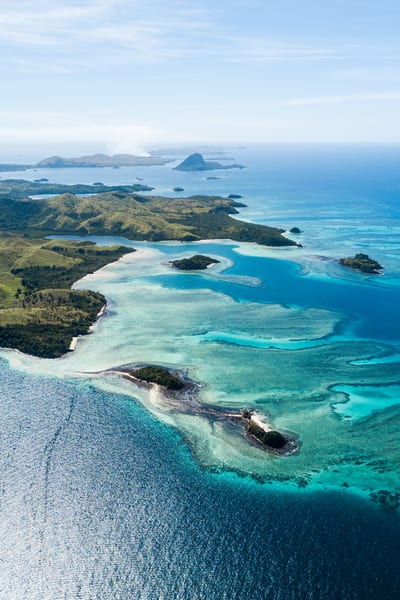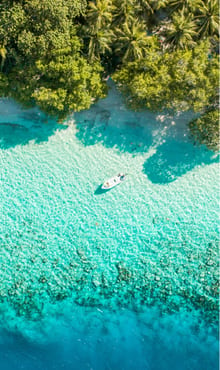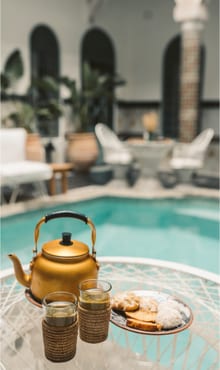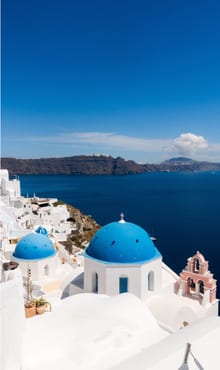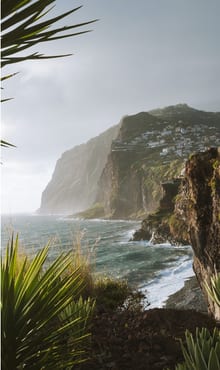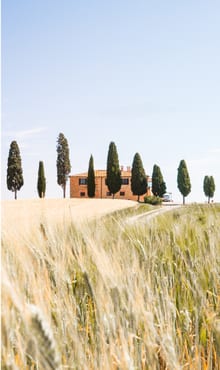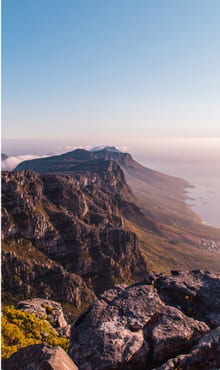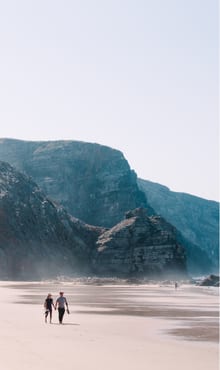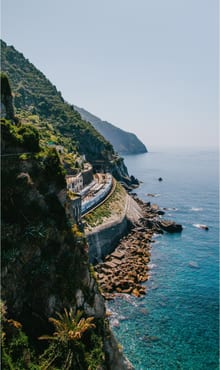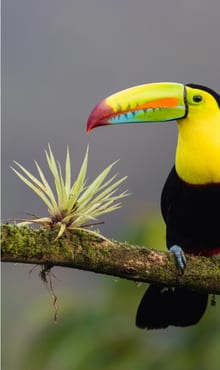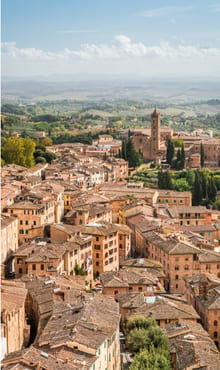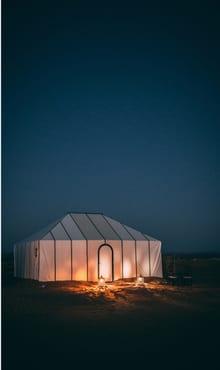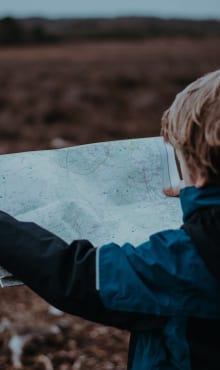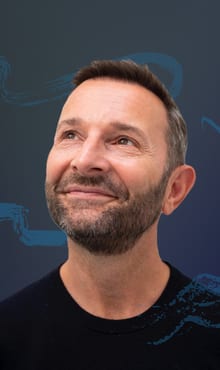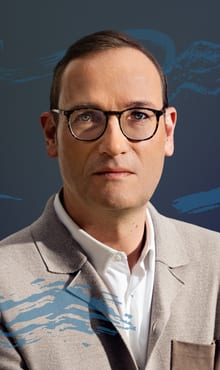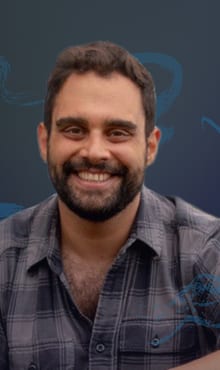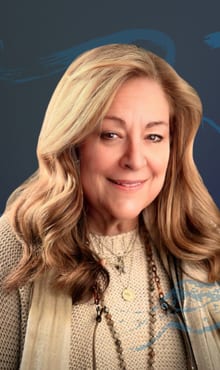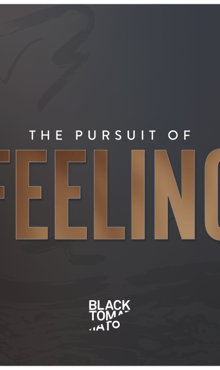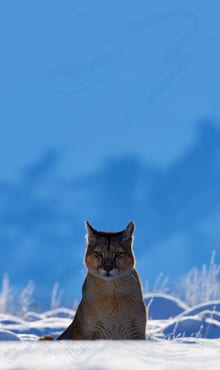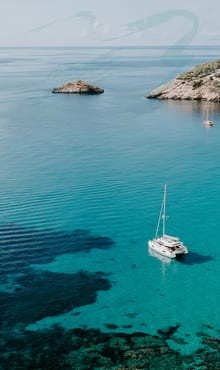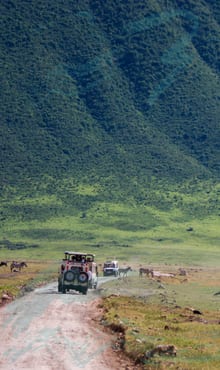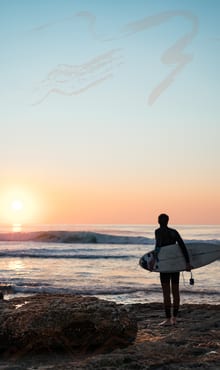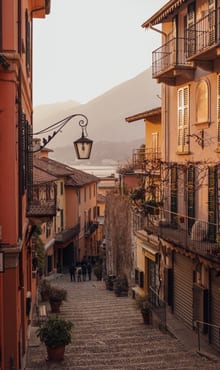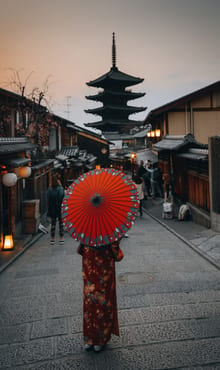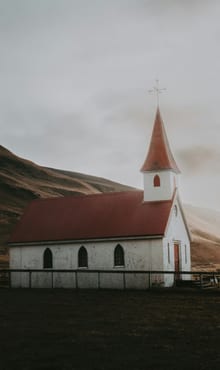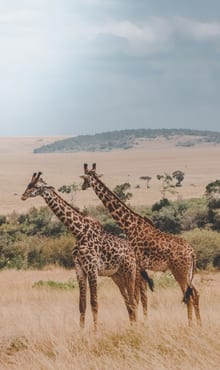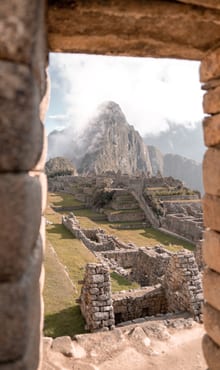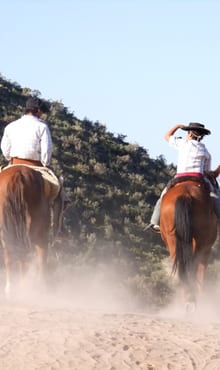Transcript
Owen Vince: 0:01
You’re listening to the Pursuit of Feeling, a podcast by Black Tomato. In this new series, we want to explore not only the world of travel, but the world of emotion and what it ultimately means to feel our way through the world. In each episode, you’ll also get a Rolodex of recommendations from our guests on where to go, what to do and where to stay all around the world. Where to go, what to do and where to stay all around the world.
Owen Vince: 0:26
Today, we’re honoured to share our conversation with Jacqui Gifford, Editor-in-Chief of Travel Leisure, the world’s leading travel media brand. Jacqui global upbringing, born in Japan and raised in Saudi Arabia, Qatar and Pennsylvania, instilled in her a deep appreciation for diverse cultures and experiences. A Princeton graduate with a degree in English, she has dedicated over two decades to travel and lifestyle journalism. Since taking the helm at Travel and Leisure in 2018, Jacqui has guided the publication to new heights, earning prestigious accolades, including two National Magazine Awards and a James Beard Award. Under her leadership, the magazine continues to inspire millions with its compelling storytelling and stunning photography. In this episode, Jacqui shares her insights on how travel evokes powerful emotions and personal growth. She also reveals some of her favourite destinations and offers an insight into her travel philosophies and preferences. Join us as we delve into the emotional landscapes of travel with one of the industry’s most influential voices.
Owen Vince: 1:19
Hi Jacqui, thank you so much for joining us this morning on the pursuit of feeling. We want to dive straight in with some questions about emotion, feeling, travel and the world. Why do you think travel is such an emotive experience, and maybe you even disagree with that?
Jacqui Gifford: 1:35
I don’t disagree with that. I think it’s inherently emotional and emotional time for an individual because it’s taking you out of your comfort zone. We’ve been travelling for centuries, thousands of years, and as humans, I think we’re conditioned to crave stability, to crave comfort, and when we travel it takes us to literally another place. But also when you’re outside of that comfort zone, it triggers something in your brain, right, your senses are more alive. I always feel that way when I go to a new place. I’m just more hyper aware of my surroundings. You’re also feeling very vulnerable when you travel. Genetically we’re conditioned to again crave stability, and when you’re outside of that comfort zone, you’re sort of like, wow, what’s coming at me, what do I need to prepare for? And you’re also looking for pleasure. So I naturally feel, or I feel that naturally, it’s an emotional time because you’re feeling quite vulnerable.
Owen Vince: 2:36
Yeah, in a way you kind of become like a newborn baby, because very functional things like even, like you know, using public transport or going to a shop, suddenly are you know outside of your norm. You don’t know how to. You don’t know the kind of rules that dictate how people live. You can kind of intuit them a little bit. But you’ve had I mean well, what I know of you, you’ve had a pretty international life. You were born in Japan.
Owen Vince: 2:55
I was Right and you’ve moved all over, so you’re kind of fully a very kind of international person. Do you think that’s made you, I suppose, less susceptible to that feeling of culture shock when you, when you go somewhere else? I think so.
Jacqui Gifford: 3:06
I think that, just because of how I was growing up and my parents’ mentality, ethos of they were naturally always really curious and love to explore and go to different destinations so I think that I’ve always been more of an extrovert. It’s in my personality and I think that, you know, there’s always the nature of nurture. I’ll never quite know if I, you know, if I was living here in the States my whole life, if I would have decided as an adult to travel the world in the same way maybe. But here I am today as somebody who has lived in multiple countries now lived in New York for over 20 years.
Jacqui Gifford: 3:43
I think that I am naturally curious and I love to explore and put myself in that position of vulnerability because then I think it allows for growth and then in turn you become a stronger person because of it, because you do get to interact with other cultures, with other people, meet them where they are, and I always feel that when I come back from a trip I’ve grown in some way. It could be a really small trip. It doesn’t have to be something grand, it could be even going here within the US. I think we sort of dismiss the idea that a domestic trip is. You know, it’s an adventure too, right? So I personally feel that travelling always leads to growth.
Owen Vince: 4:21
Always, always, okay, talking about kind of resilience and kind of, you know, growth. When you travel, do you find that there are particular places where you’re more likely to have those? Transformative is quite a weighted word in a way, but kind of to have those kind of realizations, or are they more unexpected?
Jacqui Gifford: 4:37
I think that there are certain trips when you I’m going to name one that I took recently when we went to Egypt you I’m going to name one that I took recently when we went to Egypt when you’re sort of struck by the sweep of time and sort of how small your presence is really in the world. Some of the monuments and sort of the grand, you know, the scale of the pyramids, some of the temples we saw, and you realize that these buildings were built thousands of years ago. I imagine people have the same feeling when they go to Greece, orce or italy or turkey. You really do feel quite small. So I feel that trips that really look back at history and the historical those really give you a a sense of wonder I mean, I suppose we’re talking about the pyramids, the valley of the kings, these places.
Owen Vince: 5:17
Is it quite difficult to? This was your first time seeing these things in the I have been before, but not as an adult.
Jacqui Gifford: 5:24
I’d actually gone, believe it or not, when I was a teenager, and I think that I appreciated it much more on this trip. But anyway, go on.
Owen Vince: 5:31
Yeah, yeah, because I mean I’m curious about places that are, in a way, really overdetermined by the image of them, right, Because, I know I mean you’ve written about the Taj Mahal, for example this is somewhere you see in photographs and in film hundreds of times potentially, before you actually go, yeah, to these places.
Owen Vince: 5:49
So when you finally experience it, you’re kind of having to balance the experiential moment in your head with this image you have that from I don’t know a tv series or a film or a book. Does that? Do you find you can kind of filter out those two? I can, so I think it’s funny.
Jacqui Gifford: 6:03
I’ve thought about this actually when we were in Egypt this last time and we saw the Sphinx, because a lot of people say to me I’ve heard people say, oh, the Sphinx isn’t as impressive as I thought it would be, and to me I think people have built up that the Sphinx is bigger in their minds than it actually is.
Jacqui Gifford: 6:19
Look, people are entitled to their own opinions, but my perspective on that particular sentiment is you’re looking at something that’s still thousands and thousands of years old. The fact that it’s still standing is impressive enough to me, right? So I think it’s hard now, with social media and media in general, people have already decided in their minds what a place is going to look like before they even get there. I’m a glass half full kind of a person, so I’ve always feel that when I get to that place, there’s a moment of appreciation and respect for the fact that it still exists first of all, and then you have to sort of absorb the sheer amount of people that might be there which is a real challenge right now in tourism and then understand sort of your place within the framework.
Jacqui Gifford: 7:02
Again, I’m glass half full, full. I go in sort of understanding that these places are incredible and I feel like it always is better in person.
Owen Vince: 7:09
Yeah I’ve had that feeling a lot when you, you know you kind of, can have to contend with the fact that you go somewhere, there are people there and it might be kind of ordinary life flowing around it, and you’re like, well, I’m also a person that’s come here right, you can’t have it in a pristine way. You know it’s kind of exists in the world that’s come here, right, you can’t have it in a pristine way.
Owen Vince: 7:23
You know it’s kind of exists in the world. That’s what makes it interesting. I am curious, though are there places where you’ve been, or, I suppose, destinations or experiences that you’ve had where your expectation was completely I don’t know the expectation, you have really clashed with the actual experience.
Jacqui Gifford: 7:39
You know it’s funny. I find that, again, because of my sort of just general curiosity, I usually choose a destination and go in sort of knowing enough about it to feel like it’s going to be a positive experience. One place that I think that really challenged me overall was Rwanda. So I went last year with my family and I was so excited to go and see the gorillas and that’s you know, the mountain gorillas and go tracking them in Volcanoes National Park that’s you know. Many people wait their whole lives to do it. So I was so thrilled and honored we could do it.
Jacqui Gifford: 8:13
I think I was expecting that to be incredible and it was, but I wasn’t expecting the other parts of the destination to be as fulfiling as they were emotionally, whether it was Kigali, which is an incredibly rich city, akagera National Park I think I don’t want to ever say I had low expectations, because I didn’t, but I was unprepared for the sort of diversity of experiences you could have in one very small country where tourism is, frankly, really nascent. So you know, it’s obviously it’s been 30 years since the genocide there and the fact that there’s even tourism at all is remarkable. So I think my perception of it was wildlife, sure, but I walked out of the destination feeling like this is a place that is filled with a remarkably resilient people.
Owen Vince: 9:03
Yeah, I mean it’s quite an incredible transformation in a way, because certain I suppose certain countries are in a way, the shadow of their past hangs over them in a very big way. I mean, Cambodia is the same in a lot of senses, right, so you’re kind of contending with this history, which is there and also trying to.
Owen Vince: 9:19
Like you said earlier, you’re ultimately travelling for pleasure. You know new experiences and pleasure and there can be a slight you know a little bit of kind of cognitive dissonance when you’re in a place, but maybe around us, somewhere where that kind of is obviously very positive, very, you know, profound experience. I mean so with the gorillas. That experience itself was this thing that you were mentally focused on in the run-ups.
Jacqui Gifford: 9:38
I think I was mentally focused on it for a couple of reasons. One it can be quite physically challenging, so I was concerned about making sure you know you have the right gear. You’re out there. I also should say we did chimpanzee trekking, which I actually found much harder than gorilla trekking Chimpanzee trekking was an experience that totally floored me.
Jacqui Gifford: 10:00
I’ve never been that physically challenged on a trip in my life. It was five or six hours in Yongwei forest. Absolutely there’s no, really no trails at some points where you’re just going up hills. There, you know the trackers are cutting trees, branches, clear a path for you to see the chimps, who are quite fast moving right. The gorillas are slower moving. So I was challenged in a way that you know you’re seeing this animal totally in the wild, on their terms and with a traditional safari experience. When you’re in a vehicle, there’s the comfort of the vehicle. When you’re on foot, it’s very different. So I found it to be really rewarding, rewarding and I think this is something you could acknowledge. As a traveller. I don’t think I would choose to go chimpanzee trekking again oh, really, and that’s okay.
Owen Vince: 10:51
Oh, just because of the physical, I think, because I think there are some experiences that you can say one time is enough it’s not that it wasn’t rewarding.
Jacqui Gifford: 11:00
it’s not that it wasn’t rewarding, it’s just that I think that the physical part was hard, but also I I’ve never come back from a trip or an experience at that day being so emotionally and physically drained where. I was like I’m in bed by seven 30. I can’t physically move anymore.
Owen Vince: 11:22
The ache sets in and also really sort of physically.
Jacqui Gifford: 11:26
But also, you know, you’re looking at this group of chimps right and they’re just fascinating creatures, and so I I think it really sort of challenged my thinking around them as well, and also in a good way, like should I be here?
Owen Vince: 11:45
and I’m glad I did it. Yeah, was.
Jacqui Gifford: 11:48
I getting too close to them and obviously I wasn’t, because and the guides were very, you know they’re it’s all very controlled. But you know, there’s always that tension between travellers and wildlife like, should I really be here and um, and I definitely felt it on that trip at that particular moment, which is why I can say I don’t think I’d do it again like you were almost trespassing on this a little bit, a little bit also.
Jacqui Gifford: 12:12
Again, it’s a completely safe experience, it’s all. It’s just. I understand why they they’re very controlled, but it’s like I I don’t know if I would. I just don’t think I would do it again, okay maybe, maybe the memory is too perfect you should perfect, you should do it, and then you can tell me what you think about it.
Owen Vince: 12:28
I mean it’s true. I mean there’s certain maybe you know if you go, if you repeatedly go to a place and maybe that kind of sense of culture shock that you talked about earlier begins to kind of you know, wear away a little bit, becomes familiar, and it is very nice being you know feeling at home somewhere on multiple visits, but you do lose that kind of reason of what am I doing?
Jacqui Gifford: 12:45
How do I interact in this place, I think with chimpanzees as well. It’s kind of strange because you are looking for this signs of humanity in a weird way. Like you know, you are kind of trying to see how, how familiar they are to like to me, which is not something you’re doing when you’re you know the various chimps somewhere.
Jacqui Gifford: 13:12
They’re looking directly at you and you could just almost tell like wow, okay, the level of consciousness and the level of intelligence is so high. And with the gorillas it’s a very similar feeling. And the gorillas for lack of a better word they just seem a little bit warmer and fuzzier than the chimps. So, um, although they’re certainly not, but it’s just in two very different experiences, I feel very fortunate to have had two very different experiences on that same trip. What’s interesting is, I would say I would do the gorilla trekking again, but I I don’t know if I would do the chimp checking again the chimpanzee was too intense, it was too intense, it was too intense.
Jacqui Gifford: 13:54
I also recognized too much looking at them. That was, it was almost, it was too disconcerting.
Owen Vince: 14:01
Interesting, disconcerting how.
Jacqui Gifford: 14:02
You could tell that they just I don’t know if they really wanted us there.
Owen Vince: 14:06
I really so more territorial.
Jacqui Gifford: 14:12
But they weren’t threatening in any and again, it was totally safe. I just don’t there’s. There’s an edge there.
Owen Vince: 14:15
Okay, yeah, can I tell you something scary?
Jacqui Gifford: 14:17
And I swear my husband felt the same way he was like hmm.
Owen Vince: 14:23
We’ve wandered into the wrong part of town. Yeah, that’s what you’re thinking I’ll tell you something scary, which is I briefly did uh, studied primate anthropology years and years ago and there was a you know, so I know a little bit. I think we had this, this lecture. He was telling us about a particular tribe of chimpanzees, very specifically one who had learned to hunt with tools. So they were sharpening spears and hunting.
Jacqui Gifford: 14:43
So at that point, okay it’s a planet of the apes kind of it really is.
Owen Vince: 14:47
It really is you came very close. You know, I think yeah, 98. We share 98% of our DNA with them. But it’s 97% with the bananas, so I don’t know what that says. So these are, like, obviously very extraordinary, very, you know, like you said, things you probably wouldn’t do more than once. Yes, you kind of want to feel a bit strange there. By contrast, where do you feel most at home?
Jacqui Gifford: 15:15
I feel obviously at home in my hometown of New York City, which I think is. I should always acknowledge that when you live in a big city like this, there are still plenty of places to explore. There are neighborhoods. I’ve still yet to go to restaurants to try, so I often still feel like I’m a tourist here. I feel like I’m a tourist here.
Jacqui Gifford: 15:33
I feel like I’m a tourist here every day, but I feel at home here, just walking the streets and absorbing right. I feel at home in Japan, even though it’s been 10 years since I’ve been. But I, since I was born there left, moved back, I went to school there something about it, I think when you’re born in a place, again that sort of nature nurture I’m not Japanese, but I I feel, when you’re born in a place, again that sort of nature nurture. I’m not Japanese, but I feel a kinship there and just because I lived there, I also spent a lot of time in the Middle East growing up as a child. So whenever I return I feel a sense of comfort and just a nostalgic.
Jacqui Gifford: 16:14
I think when you spend a substantive amount of time in a place and you enjoy it, I think you’ll always have a funness for it and will naturally feel a certain amount of you know warmth. I also feel that way about Hawaii, though I haven’t been back in some time.
Jacqui Gifford: 16:22
I used to holiday there all the time with my family and we would go every year, and that’s why I think some people choose to holiday in one spot all the time. I’ve sort of shifted away from that pattern and travel habit just because of my work and what I do now, where I sort of naturally feel like I have to have an understanding of what’s going on in multiple places. But a lot of people choose to travel like that and that’s completely fine.
Owen Vince: 16:45
I think it’s fine. Yeah, I’ve done that in the past as well. You know, Barcelona is a place I’ve been to 10, 15 times.
Jacqui Gifford: 16:51
Yeah, so you’re going to feel comfortable there.
Owen Vince: 16:53
Yeah, it’s kind of nice to know what I’m doing slightly, even though my Spanish is terrible. But you know, you kind of mentioned work and I’m curious about that. Obviously, editing writing, do you travel differently when you’re travelling on assignment professionally to when you’re travelling for your own leisure? Basically yes.
Jacqui Gifford: 17:09
I have to sort of switch my brain a little bit when I’m when I’m travelling for an assignment, there’s a you know you’re. You’re constantly taking notes, interviews, meeting people. There’s a certain level of like on this I call it when you’re doing that.
Jacqui Gifford: 17:24
I’m a curious person and I love that kind of travel, but then there’s also trips that have to be completely restorative and shut off. So one place that my family and I love and I know we were talking earlier about the comfort and we love Ischia in Italy. It’s an island off the coast by Naples and we have been now twice for about eight days a week and it’s a very special place. There’s healing waters, thermal waters. It’s a really beautiful, beautiful island, and what I love about it is that mostly the most travellers there are Italian, and so it feels a little bit like a throwback.
Jacqui Gifford: 18:02
And when we go, we stay at this beautiful hotel called the Regina Isabella, which was built in the fifties by Angela Rizzoli, but it has a time capsule quality to it these old Neapolitan tiles and breakfast in the morning with waiters, you know, wearing full jackets, and it has this beautiful quality to it where it just makes you want to slow down. So I go and I bring my books and we walk into town at night and my son loves it, my husband loves it, my parents love it, because it really feels like a place where it’s not that there’s nothing to do. There’s plenty to do, but we’re there. It’s truly like that holiday mode, and so I’m not. You know I’m not there with my brain going 5 million miles an hour, so you can.
Owen Vince: 18:46
You can switch it off when you I can?
Jacqui Gifford: 18:48
I think it’s. I mean listen, I think the hardest part about switching off now is social media. If I can be honest, I like to post, so that is the hardest part. We were in Canada recently at a great hotel I shouldn’t even say great, it’s beyond great Called the Clioquot Wilderness Lodge, which is on Vancouver Island, the Clioquot Sound, and the only place we could get Wi-Fi was in our room tented cabin. Which are these, like you know? It’s crazy. There’s only about 30 rooms there, and when we were out on the boat where we saw orcas in seattle, we we didn’t get service and that was great. Yeah, look.
Jacqui Gifford: 19:26
I think people today are frazzled, they are stressed, and we love the ability to connect with friends and family from all over the world at any given moment and know what’s going on with them. Technology has given us these incredible benefits. It’s not going away, but and then this is a big but there’s a cost that comes with all of it, and I think that we’re now at this point as a society where we’re starting to analyze what those costs really are yeah, I think.
Owen Vince: 19:55
I think there’s a lot more self-awareness now, maybe 20, 30 years into having, you know, social media, that it’s actually quite a long time and it doesn’t feel like it should be that long that people are realizing it’s a poison than a cure as well. You know, it does connect you to the world and you can see interesting far-flung places and connect with your friends who live on the other side of the earth. But also when you go to the other side of the earth, you still get your phone in your pocket.
Jacqui Gifford: 20:19
It’s like how you go to a place like, for example, egypt, when we were there. You’re interacting with some of the most incredible historical monuments of the world and you’re using your phone probably to take a picture of a lot of it. Phone probably to take a picture of a lot of it, right? I don’t know why, you know, at that exact moment you need to message with x friend who is, you know, halfway across the universe about, or halfway across the world about, what they ate for lunch that day yeah that I think that there’s there’s some real sort of some mysteries, some, yeah, mysteries.
Jacqui Gifford: 20:52
You know there’s some things that we need to sort of get down to a granular level, and it really, to me, is about focus right, and I think that people today really struggle with focus. There was a great piece just recently in the atlantic about kids can’t really focus and read a whole book.
Owen Vince: 21:12
I read the same piece. I think about college students who are unfamiliar with finishing.
Jacqui Gifford: 21:17
So you know, listen, and that’s one piece, right? So I’m not it’s, but I remember when and I’m a voracious reader, and again, I’m hardwired a different way, but I remember consuming volumes and volumes of text. In college, part of our coursework was to read these books, and we were expected to read these books, and I did it.
Owen Vince: 21:38
I did the assignment and I you know, and listen.
Jacqui Gifford: 21:42
the world has shifted even since then, with more people focusing on STEM versus the humanities, and that’s an interesting debate that’s going on right now. But the argument is really about focus. Can we actually sit with ourselves, be in a place and focus on that for a certain amount of time? And I think the answer is right now we’re really struggling, yeah there’s an attendant pressure with that, I think when you’re somewhere because you think, okay, I’m here to relax, and then you kind of can’t.
Owen Vince: 22:11
you know, it’s hard to suddenly switch into a place which is everything is set up perfectly and you have a drink and there’s the sun and a beautiful view and a book, and you think, okay, now I’m ready to relax. And it’s quite hard to switch your brain off, I think in a way. I mean, maybe I don’t know if the solution is going completely smartphone-less Would you do that? Would you go?
Jacqui Gifford: 22:27
would you travel without taking a device I would for taking a device for one trip from start to finish, just full paperless. I mean. Look, I think that a the the surprising fact is.
Owen Vince: 22:39
I’ve done it before. This is true when I was young we all can acknowledge we’ve probably.
Jacqui Gifford: 22:44
You know, there was a time when I didn’t have one there are. There are generations of people that you know maybe haven’t lived that experience, but I’m. I’m old enough to say that I have taken trips without a smartphone. So I, you know, maybe haven’t lived that experience, but I’m I’m old enough to say that I have taken trips without a smartphone. So, I you know and and had a great time doing so.
Owen Vince: 22:59
I think there’s something as well, you know, talking about text and about literature and about reading, because for me, reading books was, you know, an inspiring experience that made me want to travel. More than looking at photos, in fact, more than music, anything else, it was like reading, like laurence darrell or someone like that, and you know, wanting to travel to greece and to egypt. Of course you know, and it’s like I think you’re losing something by not absorbing those texts, I suppose, yeah I listen, you’re preaching to the choir.
Jacqui Gifford: 23:27
I’m a big reader, you know. I keep a running tab and list of all the books that I’ve read this year and I use those books as inspiration for future travels.
Jacqui Gifford: 23:36
I also buy books when I’m on the ground to try and better understand a place. You know I love that form of travel and escapism. I don’t know if it’s as widespread as it used to be, you know, and that’s a sad reality. But we should also acknowledge that. You know the way that most people are consuming. You know people are listening to podcasts, they’re consuming video, and that’s a form of content that can be very enriching when done well, and that is another way to draw people in and that seems to be the more prevalent way now of drawing younger travellers and consumers in. And that seems to be a more prevalent, the more prevalent way now of drawing younger travellers and consumers in. And then the other surprise of it all is that, you know, everybody sort of frets and worries about the younger consumer and guess what Surprise they get older and then their habits change.
Owen Vince: 24:25
It’s not true. We don’t get older, it’s fine. So it’s like I love it.
Jacqui Gifford: 24:28
It’s like everyone’s like you know freaks out about. You know millennials aren’t drinking wine? Well then, surprise they get older and then they will eventually drink wine or whatever, or you know, there’s always some worry about what the next generation will do, and then they sort of they change.
Owen Vince: 24:45
It’s a perennial debate, and I think Aristotle complained about people writing things down because they lost the art of like oratory and talking Right. So I think that’s yeah, yeah, it’s kind of an old debate. It’s an old debate yeah, I think there was one thing you mentioned earlier I kind of want to go back to you talked about an island in italy um ischia and the kind of word you I think the word you didn’t say that was hanging over. It was a sense of authenticity.
Jacqui Gifford: 25:08
I think yes, does it is?
Owen Vince: 25:10
is the authentic authentic? Does the authentic exist? And what is it? Do you think? Because it is a word that is so easy to invoke, but I think what it actually means to different people can vary quite a lot.
Jacqui Gifford: 25:23
I’m going to be somewhat controversial here and say that authentic as it exists right now in travel. Well, a, it’s overused and B I don’t really know what it means anymore. Because the argument for saying that Ischia is authentic is this? A lot of Italians holiday there. It doesn’t feel, you know, overrun with Americans, which you know. I’m American, so hey, but there are some destinations, some places, particularly within Italy, where it feels like you’re as likely to hear an American accent as an Italian accent. Right, I was just reading something about. You know, when you go to Venice, florence, think about that, right, that some of these places feel like they’re more tourists than locals. Now, at the same time, is the Ischia of 2024, the Ischia of when you know the my Brilliant Friend Ischia? No, it’s not. And is that a more authentic Ischia? Maybe the one from the past? I think that the challenges with the word authenticity is that it sort of puts a label on a place and says that it’s not entitled or allowed to evolve.
Owen Vince: 26:32
Yeah, it has to be kind of frozen in time, it has to be frozen in time and I think that that’s not entitled or allowed to evolve. Yeah, it has to be kind of frozen in time, it has to be frozen in time.
Jacqui Gifford: 26:35
And I think that that’s the challenge. Most people naturally want to see something in what they feel is a more real state and listen, I think actually the beauty of living in a place like New York is that New York has permission to change. People accept that New York is changing all the time and they’re totally fine with it. Some places don’t have that permission.
Owen Vince: 27:00
I suppose you would notice the change more right, it would be much more extravagant, it would be exaggerated in a way.
Jacqui Gifford: 27:06
New York is a place of immigrants. It’s a place of strivers. It’s a place of people who come and go. They want to be a part of the city and its life. It’s so different from most cities really in the world and it’s allowed to change. I think that that’s really the struggle, frankly, with a place even like Venice. Right, people are going there for a very specific.
Jacqui Gifford: 27:30
It’s absolutely breathtakingly beautiful yeah, yeah but, Venice, I think, is in a real crossroads moment because it hasn’t been allowed to change in in ways that allow for positive um impact on some local you know, local businesses, local housing.
Owen Vince: 27:47
It’s a really interesting case study for that sort of loaded word of authenticity and I mean I think it’s so unique in a way it’s so unique, I mean it’s sort of really like venice, although my solution is you should go in winter it’s I mean venice, and winter is absolutely beautiful.
Jacqui Gifford: 28:03
I think that the idea of when you’re going to see more local life is a way around some of these challenges yeah, there are certain destinations in the world that I really feel are at a crossroads of having to figure out what the path is forward when it comes to building up that sort of like sense of community and vibrancy. That is actually what people are looking for right now.
Owen Vince: 28:29
Yeah, they don’t cause. You don’t want to encounter someone like yourself in a way. Right, you know to travel across the world, I mean, you know, to be on a street with people who could live on the same street you actually live on back home can be quite jarring, but maybe with somewhere like Venice, yeah, the case is, what do we want to be in the future? What do we want our identity to be? There’s a reason people go to these places.
Jacqui Gifford: 28:55
Of course, because you guess almost now, you know six, 700 years ago, when it was this maritime power.
Owen Vince: 29:04
And that to me is fascinating and rich.
Jacqui Gifford: 29:07
And you know again, as we speak about, like, the historical threat of certain places. So, you know, is it absolutely amazing? Sure, and I would go there tomorrow if given the chance but, I, think you’re just you’re as a, as someone again who’s curious and sort of just looking at this from an editor’s lens. I’m always thinking about some of these questions.
Jacqui Gifford: 29:25
And when someone goes, which is again what we hear all the time. People go to a place and they’re like oh, it was overcrowded or I didn’t have the experience I thought I was going to have.
Owen Vince: 29:34
You have to sort of ask why One thing I want to ask obviously, this podcast is mostly about feeling and emotion and travel. Has there been a kind of what’s the biggest emotional shift you’ve had when you’ve been travelling? Has there been a time when the shift has been, you know, so exaggerated or so huge, so remarkable? Is there a place?
Jacqui Gifford: 29:58
So I’ll give you two examples. One this was years ago. My husband and I were on safari in Botswana. Yeah, I love being in Africa, it’s just, and seeing the wildlife there, it’s so enriching from an emotional standpoint. You again, you feel quite small in the world and you’re told the animals see the vehicle as one thing. I remember it to this day.
Jacqui Gifford: 30:23
We were in and this is over 10 years ago. We were in the very back row of the vehicle and there was another couple in front of us and another couple in front of us and then the driver and we were driving through a fairly open field. And we get to this point and we see this group of lions and two of the lions were sleeping and I think they were females, and there was a male who was very awake and we got closer and approached the lion and he looked up. And we got closer and approached the lion and he looked up and you could, it was like he. I swear he looked exact. He looked right at us. He was not.
Jacqui Gifford: 31:01
He looked at my husband. He was not looking at anybody else in the vehicle. And and I and I went like this and I literally grabbed his knee and and it was like we knew that he was looking at us and the driver was like everything’s okay, don’t worry, and he’s like I’m just going to start backing up slowly, and then he kept looking at us. We then just sort of zoomed away and the lion actually gave chase and it was a play. It was a play thing, like he wasn’t. But you know, it was one of those things where you were kind of like, oh, like it it felt and I felt total fear, like that was like my stomach just basically dropped.
Jacqui Gifford: 31:42
And then you know, after something like that you sort of get that like adrenaline rush and it was really um, and I felt that a couple of times when I’ve traveled where it was like, you know, that total, like ah, and then you feel that high um, cause you made it out of, out of the experience, so um, and then I would say the sort of like looking at like a sweep of a trip, a long trip, like coming out of something and feeling uh, restored or again really enriched. You know, we’ve had lots of family trips that I’ve felt. When we went to Kenya with our son, I felt that way. Doing Rwanda, we felt that way. There’s so many sort of Egypt, I think just and again, because it’s more present in my mind, I think we felt coming out of that trip really, and it was a tiring trip because you’re seeing so many different things, but I mean, I knew it was going to be a great trip, but I went in feeling like curious, happy, and then came out just feeling really optimistic about humanity.
Owen Vince: 32:47
Had you expected that you would feel that way?
Jacqui Gifford: 32:49
No, no, and not that I like I, not that I thought the trip wasn’t gonna be great, it was more that I just I think I I felt more inspired by the sort of intelligence and creativity of what we as human beings can produce quite an amazing thing to walk away from a trip right, rather than just thinking oh, that was nice it was nice, we had a good time yeah, we had a good time I’m kind of curious as well about you talking about being pursued by a juvenile lion.
Jacqui Gifford: 33:14
If they didn’t want to eat you you know what’s that I mean?
Owen Vince: 33:18
there’s an argument to that. That’s quite an experience. It’s a hell of a thing to go through.
Owen Vince: 33:23
And it’s like maybe fear, there is a place for controlled chaos or kind of controlled fear when we go to other places. You would never go out. Maybe you would never go out and maybe you would go out. Some people do go out and seek it right. They do want to go and go to somewhere. Very I know there’s a whole side to sort of dark tourism and whatever. Um, and the optics of that can seem quite strange to me, but I think moments of controlled chaos and fear can be good. Would you ever go, like you know?
Jacqui Gifford: 33:48
I’m not like a skydiver type or, uh, not a natural thrill seeker, but I understand why some people really respond to that, or that’s certainly a trend that we’ve seen over time and travel. You know it’s funny, I, I still have not done hot air ballooning and my husband absolutely refuses to do it and he, he pretty much will do anything.
Owen Vince: 34:13
Has he got vertigo or fear of heights or?
Jacqui Gifford: 34:15
just is like there is no way I’m getting and then, I actually look and I’m like I kind of get why yeah, you’re in a wicker basket suspended above the earth. Yeah, I’m sure it’s fine, I’m like actually it’s kind of?
Owen Vince: 34:28
obviously I don’t want to. You know if it deter anyone. Yeah, I’m sure it’s fine.
Jacqui Gifford: 34:33
I totally get it but um but. I would imagine you get in a hot air balloon and there’s this moment of fear, and then you must feel this moment of relief when you actually land on it.
Owen Vince: 34:42
So maybe it’s. It’s not the fear itself so much as that kind of fading of the fear, the kind of adrenaline rush, that kind of yeah.
Jacqui Gifford: 34:54
It’s why space tourism is developing, it’s why all there’s so many, or it’s why, you know, I would imagine, um, you know, sailing to antarctica. There’s a bit of that that goes into it.
Owen Vince: 34:59
Right, it’s well, it’s kind of last frontiers in the world that has, like we said, has been largely trodden and saturated, but is there anywhere? That’s your last frontier, like place? You haven’t been yet, that you are desperate to go to, or maybe holding off on going there I have not done Antarctica, I’ve not done gosh.
Jacqui Gifford: 35:18
I mean, there’s so many places I have not been to. I’ve not been to Peru and I’m really eager to get there. You know the other. Going back to another question you asked and I should have mentioned this, the Galapagos.
Jacqui Gifford: 35:28
That was a destination when we did a cruise there with Quasar, which was really interesting because again, you’re challenged a lot. Physically. I never felt fear there, but I also felt. Again it’s a place where you realize that the wildlife is in control. I like going to places where you’re right, you’re seeding a level of control and that could be in an urban environment too, where you’re just either you don’t speak the language, you just again going back to the original sort of foundation of it.
Owen Vince: 35:58
You feel like you’re out of a fish out of water yeah, literally, yeah is there a, an experience you didn’t expect you have on a trip that kind of I? I suppose knocks you off your feet a little bit.
Jacqui Gifford: 36:14
When we were in Rwanda, when we were in Kigali, you know we were there for two or three days and a lot of people actually don’t spend a lot of time in Kigali because they want to go out to do the gorillas and the national parks. And one of the things we chose to do and I don’t regret it at all all was experience and go to the genocide memorial there and it’s a heartbreaking experience. You are not allowed to take photos inside. You know, we actually chose, through much care and thought, to bring our son as well so he could experience it. He’s nine. At the time he was eight.
Jacqui Gifford: 36:48
I felt many emotions over the course of the two hours we were there and one that I think you know I wasn’t expecting to. You feel sadness, you feel hopeless, but I was also came out. I was very angry at points because again and it’s emotion that’s tied to the other two, but I was angry that something could like that could happen. And then I also felt very protective as a mother who was there with her child and there are parts of the museum where you see what happened to children and you know it was one of the most profound experiences I’ve ever had. My son really handled it really well, and one of the guards who was there and one of the leaders in the museum, he saw obviously we were bringing Bobby in. He said, you know, he can do everything except don’t bring him into this one place and, and that was obviously the right call this one part of the museum which specifically you know it, it was important for him to see parts of it and, as a parent.
Jacqui Gifford: 37:48
I shielded him from the things that I didn’t feel he was old enough to see. But again, going back to that feeling of anger, you know that was something I didn’t think I would ever feel on a trip.
Owen Vince: 38:01
Yeah, I suppose you’re expecting to feel certain solemnity and you know quietude, maybe when you’re there, but yeah, to have the maybe, that’s the more human emotion in a way, and it’s the flip side of what you were talking about earlier. You know, going to Egypt and feeling a sense of optimism and hope about humanity. You know the good things, the good side of things. And then the anger feels like the kind of Janice face. Yeah, and you look you feel a range.
Jacqui Gifford: 38:24
I think that’s the thing. You know why people are gravitating towards travel right now. What inspires them is that it allows you to feel a range of things, and sometimes you go into a place expecting one thing and you come out feeling another.
Owen Vince: 38:37
There’s very few things that feel surprising anymore in life, and travel is the one great surprise it’s interesting because you use the word permission earlier about new york, and maybe it’s in the same way that new york has the permission to change. I think when people travel, they feel like that you know New York has the permission to change.
Owen Vince: 38:56
I think when people travel, they feel like that you know being away they have permission to, I don’t know to feel more, to be a different person to make a not necessarily a performance, but you know they feel like they can, they’re outside of their routine and you can kind of play around a bit with how you feel.
Jacqui Gifford: 39:07
I think you’re you can feel a little bit freer right so. I think sometimes, certainly with work, and but this doesn’t necessarily apply to it. You know, I’m just thinking about it through my lens. Obviously somebody who’s working all the time, and but whether you’re retired whether you’re you know might not be working at all.
Jacqui Gifford: 39:27
Whatever it is, you’re in a new environment and you can sort of let the routine go of. You know what you do back home is just sort of gone, for when you strip that away, you can be a different person. I think that’s why you know, now to solo travel is a trend that we’re seeing really take off is that people feel this license to just do what they want to do in a way that they didn’t probably 30, 40 years ago. There there’s this permission to just go out and sort of discover a new side of yourself.
Owen Vince: 39:58
Yeah, um, well, I think we are probably out of time, um, but yeah, thank you so much, Jacqui, for joining us. Um, it’s been an absolute pleasure. I know we’ve gone through fear and anger, but also optimism and hope as well, which is good. So we have the full gamut of. It’s very much like that scene in Donnie Darko where he’s like you know, they’ve got that board with hate and love on both sides, but he says it’s a continuum. So, that’s what we’re doing Emotional continuum. Thank you.
Owen Vince: 40:24
You’ve been listening to the Pursuit of Feeling, a podcast by Black Tomato. If you’ve enjoyed this episode, then please hit the subscribe button. We’ve got a lot more episodes on the way and if you’re feeling inspired by what you’ve heard today, then visit blacktomatocom. We’ll help you to travel where your heart is. Thanks for listening.





